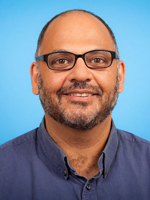CCHE Seminar: What I have learned from sitting on the Canadian Drug Expert Committee

Ahmed Bayoumi
University of Toronto, St Michael’s Hospital
Friday, January 25th, 2019, 10 AM – 12 PM, HS 412 (155 College Street)
Abstract: I will present some thoughts related to my years of experience sitting on the Canadian Drug Expert Committee (CDEC), a committee of the Canadian Agency for Drugs and Technology in Health. CDEC makes recommendations to participating public drug plans (provincial and federal) regarding which medications to include on public formularies. CDEC strives to base its recommendations on critical appraisal of both the clinical evidence and economic evaluations alongside public input. In this talk, I will review the process by which CDEC operates, with a special emphasis on how we use the results of economic analyses in our deliberations, including recommendations regarding price. I will also discuss how we use patient and public input and how CDEC makes decisions in special circumstances, such as for drugs for rare diseases. I will predominantly present my own critical reflections on CDEC processes and invite attendees to share their thoughts and experiences.
Biography: Dr. Ahmed Bayoumi, MD MSc FRCPC, is a Scientist at the Centre for Urban Health Solutions at the Li Ka Shing Knowledge Institute and a general internist and HIV physician at St. Michael’s Hospital. He is the inaugural Scientific Director of the Centre for Evidence and Health in All Policies. He is a Professor in the Department of Medicine and in the Institute of Health Policy, Management and Evaluation at the University of Toronto. He is also a Senior Adjunct Scientist at the Institute for Clinical Evaluative Sciences and a member of the Canadian Drug Expert Committee. He has previously served as Director of Clinical Epidemiology and Health Care Research at the University of Toronto and as president of the international Society for Medical Decision Making. His research interests include health services research, economic evaluation, decision analysis, and quality of life assessment for drug-use and HIV-related health interventions, and studies of the access to the delivery of health services, particularly to people who use drugs, people living with HIV, and other marginalized populations.
